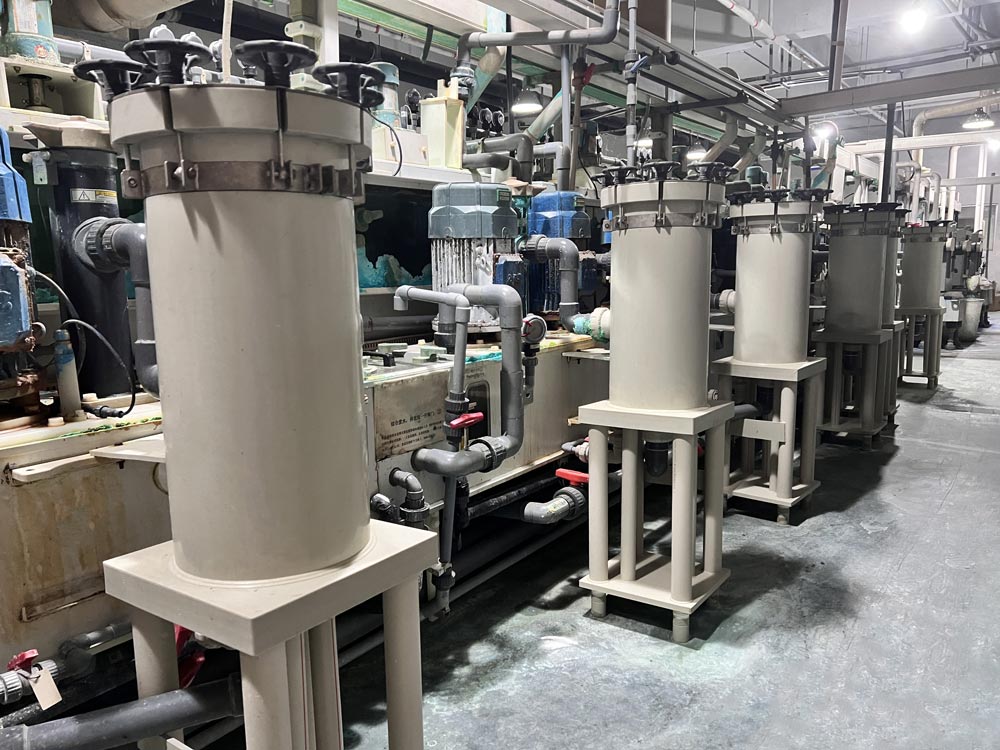# Electroplating Filter: Enhancing Efficiency and Purity in Metal Deposition Processes
Electroplating is a critical process in various industries, from automotive to electronics, where metal deposition is essential for enhancing the durability, conductivity, and aesthetic appeal of components. However, the efficiency and quality of electroplating heavily depend on the purity of the plating solution. This is where the electroplating filter plays a pivotal role.
## The Importance of Electroplating Filters
Electroplating filters are designed to remove impurities, particulates, and contaminants from the plating solution. These impurities can originate from various sources, including the raw materials used, the environment, or even the equipment itself. If left unchecked, these contaminants can lead to defects in the plated surface, such as pits, nodules, or uneven coatings, ultimately compromising the performance and appearance of the final product.
By integrating a high-quality electroplating filter into the process, manufacturers can ensure that the plating solution remains clean and free from harmful particles. This not only improves the quality of the metal deposition but also extends the lifespan of the plating solution, reducing the need for frequent replacements and maintenance.
## How Electroplating Filters Work
Electroplating filters operate by passing the plating solution through a series of filtration media, which can include materials like activated carbon, diatomaceous earth, or specialized filter cartridges. These media are selected based on the specific requirements of the plating process and the types of contaminants present.
As the solution flows through the filter, the media trap and remove particles, oils, and other impurities. The filtered solution is then returned to the plating bath, ensuring a consistent and high-quality deposition process. Some advanced filters also incorporate additional features, such as automatic backwashing or chemical dosing, to further enhance their efficiency and ease of use.
## Benefits of Using Electroplating Filters
The use of electroplating filters offers several key benefits:
– Improved Plating Quality: By removing contaminants, filters help achieve a smoother, more uniform metal coating, reducing defects and enhancing the overall finish.
– Increased Efficiency: Clean plating solutions require less energy and time to achieve the desired results, leading to faster production cycles and lower operational costs.
– Extended Solution Life: Filters help maintain the integrity of the plating solution, reducing the frequency of solution changes and minimizing waste.
– Environmental Benefits: By reducing the need for frequent solution disposal and replacement, filters contribute to more sustainable manufacturing practices.
## Choosing the Right Electroplating Filter
Selecting the appropriate electroplating filter depends on several factors, including the type of plating process, the size of the operation, and the specific contaminants present. It’s essential to work with a reputable supplier who can provide customized solutions tailored to your needs. Additionally, regular maintenance and monitoring of the filter system are crucial to ensure optimal performance and longevity.
In conclusion, electroplating filters are indispensable tools in modern metal deposition processes. They not only enhance the quality and efficiency of electroplating but also contribute to more sustainable and cost-effective manufacturing practices. By investing in the right filtration system, manufacturers can achieve superior results and maintain a competitive edge in their industry.
Keyword: electroplating filter
